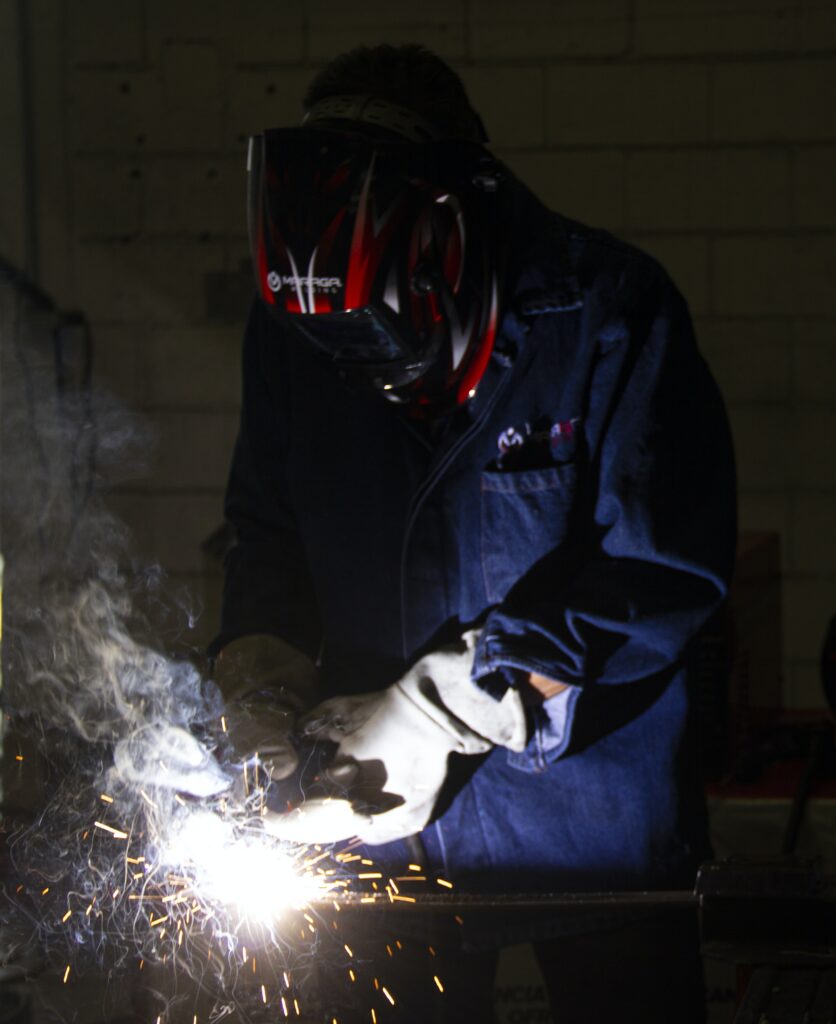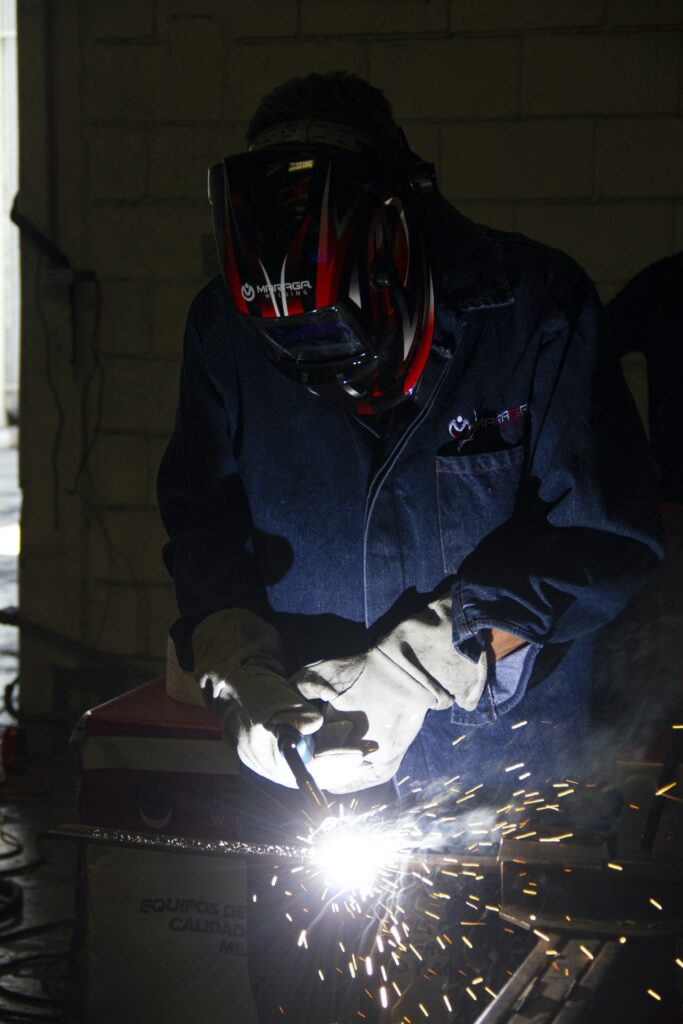Navigating the world of welding can sometimes seem complicated, and choosing the right path is important for your future career. Each of us journey down unique paths towards our career goals and one common path in the world of welding is through an apprenticeship. In this intriguing article, “Do You Have To Do An Apprenticeship Welder”, you’ll get a detailed guide, dependable answers, and factual findings that focus on whether an apprenticeship is a compulsory part of becoming a professional welder. So, buckle up and enjoy this enlightening exploration into the field of welding apprenticeships!

Understanding Welding as a Profession
The world of welding is complex, multifaceted and intensely rewarding. As a vocation, welding is as much an art as it is a craft, combining hands-on skill, technical know-how, and a deep understanding of materials and methods.
Basic Role and Responsibilities of a Welder
As a welder, your main task is joining metal parts together using a variety of tools and techniques. Your duties could include reading and interpreting blueprints, inspecting structures or materials to be welded, maintaining welding machineries and equipment, as well as ensuring adherence to safety regulations. The role demands precision, diligence, and an unyielding commitment to quality craftsmanship.
Different Types of Welding
The field of welding covers multiple techniques, each with its own specific applications and strengths. Some of the common types include shielded metal arc welding (SMAW), gas metal arc welding (GMAW), gas tungsten arc welding (GTAW), and flux-cored arc welding (FCAW). Each welding method requires a unique skill set, and the ability to master more than one can significantly enhance your versatility as a welder.
The Importance of Training in Welding
Training is a critical component of welding, serving as the foundation for everything else in this profession.
Scope of Technical Skills Needed
As a welder, you’ll need to develop a broad range of technical skills. These might include understanding the properties of different metals, mastering various welding techniques, interpreting blueprints, and maintaining welding equipment, among others. Additionally, knowledge related to geometry, trigonometry, metallurgy, and even a bit of chemistry can prove highly beneficial.
Safety Procedures and Standards
Safety is paramount in welding. Practical knowledge of safety procedures, such as correct use of protective gear, proper handling of equipment, and identifying potential workplace hazards is vital. Moreover, understanding set safety standards and regulations within your area of work can help ensure a safe and productive work environment.
Understanding Different Materials and Their Welding Techniques
Being a proficient welder necessitates knowing about different materials and how to work with them. Not all metals and alloys weld in the same way, hence, understanding how different materials react to heat and how to adjust your welding techniques accordingly is a crucial part of your training.
Traditional Path to Becoming a Welder
The conventional route to becoming a professional welder generally requires a combination of education, vocational training, and early career experience.
Educational Background
Many aspiring welders start with a high school diploma or equivalent, followed by technical training. Courses typically cover topics like blueprint reading, physics, chemistry, metallurgy, and mechanical drawing, providing a great foundation for this trade.
Vocational Training
After completing some theoretical education, vocational training in welding can give you hands-on practical abilities. This often involves simulating real-world scenarios, allowing you to get to grips with different materials, techniques, and safety measures.
Early Career Experience
Getting hands-on experience early in your career is a pivotal step. Entry-level opportunities often involve assisting experienced welders or performing simple welding tasks. This allows you to build your practical skills, learn from experienced professionals, and gradually take on more complex assignments.
Understanding the Concept of Welding Apprenticeship
Apprenticeships offer an alternative pathway to becoming a professional welder. It’s a structured method combining theoretical knowledge with intensive hands-on experience.
Definition of a Welding Apprenticeship
a welding apprenticeship is a formal program that simultaneously provides instruction and on-the-job training. It’s designed to give you a comprehensive understanding of various welding methods, safety procedures, and industry standards.
The Role of a Welding Apprentice
In an apprenticeship, your role typically involves working under the supervision of experienced welders, absorbing knowledge, and increasingly finding your own way around the workshop. You’ll be expected to learn a wealth of techniques and procedures, all the while following strict safety standards.
Difference between Classroom Learning and an Apprenticeship
While classroom learning focuses more on theoretical knowledge, an apprenticeship is primarily driven by practical on-the-job training. Apprenticeships provide exposure to real-world environments and issues, thus creating a more holistic and in-depth knowledge base as compared to pure classroom learning.

How to Obtain Welding Apprenticeship
If you’ve decided that an apprenticeship is the path for you, here’s how you can get started.
Application Process
Typically, the application process involves submitting a formal application to a professional organization or union that offers such programs. Some might mandate entrance tests or interviews to gauge your suitability and commitment to the trade.
Common Prerequisites and Requirements
The exact prerequisites vary, but generally, you would need a high school diploma or equivalent, be at least 18 years old, physically fit, and show a basic understanding of maths and scientific concepts. Additionally, you might need to pass a drug test as well.
Tips on Finding Welding Apprenticeship Opportunities
Look for opportunities through professional associations, unions, or through relevant government websites. Networking also plays a significant role, so try to connect with experienced professionals in the field to learn about potential opportunities.
Benefits of Doing An Apprenticeship in Welding
Choosing an apprenticeship has several well-documented benefits.
Hands-On Learning Experience
The main advantage is the abundance of hands-on learning. The practical experience gained in an apprenticeship is hard to match in traditional learning settings.
Mentorship and Guidance
Apprenticeships provide the opportunity to learn from seasoned professionals. Their guidance and mentorship can be invaluable for both learning and growing professionally.
Potential of Securing a Job after Completion
Many apprenticeships often lead to full-time job offers upon successful completion of the program, providing not just training but great career prospects too.

Challenges Within a Welding Apprenticeship
Although rewarding, apprenticeships are not without their challenges.
Intensity of On-Job Training
The on-the-job training can be quite demanding, often requiring you to learn quickly and adapt to the fast-paced work environment.
Adjustment to Physical Demands of Welding
Welding is physically demanding work and getting used to these demands can be a big adjustment during the initial stages of an apprenticeship.
Balancing Work and Study Time
Finding the perfect balance between work and study can also be quite challenging. It’s essential to manage your time wisely to ensure you’re making the most of your learning experience.
Alternatives to a Welding Apprenticeship
If the thought of an apprenticeship seems overwhelming, there are alternative paths to consider.
Welding Certification Programs
Certification programs offer structured training similar to an apprenticeship, but usually over a shorter timeframe. These programs offer specialized training in different welding techniques and are generally recognized within the industry.
Self-Taught Welding Skills
Some may opt to teach themselves welding. This self-taught method combines reading and conceptual learning with practical application through personal projects. However, it might be challenging to find employment without official certifications or experienced mentorship.
Career Growth and Opportunities after a Welding Apprenticeship
There is a wide array of opportunities available to you after completing a welding apprenticeship.
Job Prospects after an Apprenticeship
Completing an apprenticeship successfully can open the door to a world of career opportunities from junior welder roles to specialist positions across various industries.
Continuing Education in Welding
Even after finishing an apprenticeship, the learning doesn’t stop. Continual learning and refinement of your skills are essential for keeping up with technological advancements in the welding industry.
Career Advancements and Specializations
With time and experience, you could move on to managerial roles or become a welding inspector, instructor, or consultant. You could also specialize in areas such as underwater welding, robotic welding, or plasma cutting.
Conclusion: Deciding on a Welding Apprenticeship
While an apprenticeship offers a multitude of benefits, remember it’s just one path into the world of welding.
Personal Consideration for Committing to an Apprenticeship
Planning to commit to an apprenticeship? Take into account the time commitment, intensity of the training, and your readiness to handle the challenges of the job.
The Impact on Career Trajectory
Choosing to go through an apprenticeship can be pivotal to your career, as it equips you with comprehensive training and real-world experience right from the start.
Professional Advice on Choosing a Welding Apprenticeship
Speak to industry professionals, career counsellors, and previous apprentices. Gather insights about the pros and cons of apprenticeships and consider whether it aligns with your expectations and career goals.
Choosing a career in welding can be a path filled with opportunities for those who are passionate about the craft. Whether you opt for an apprenticeship, certification program, or go down the self-taught route, remember that the real reward in this profession lies in your dedication, continual learning, and honing of your skills. Here’s to a bright spark in your welding career!
